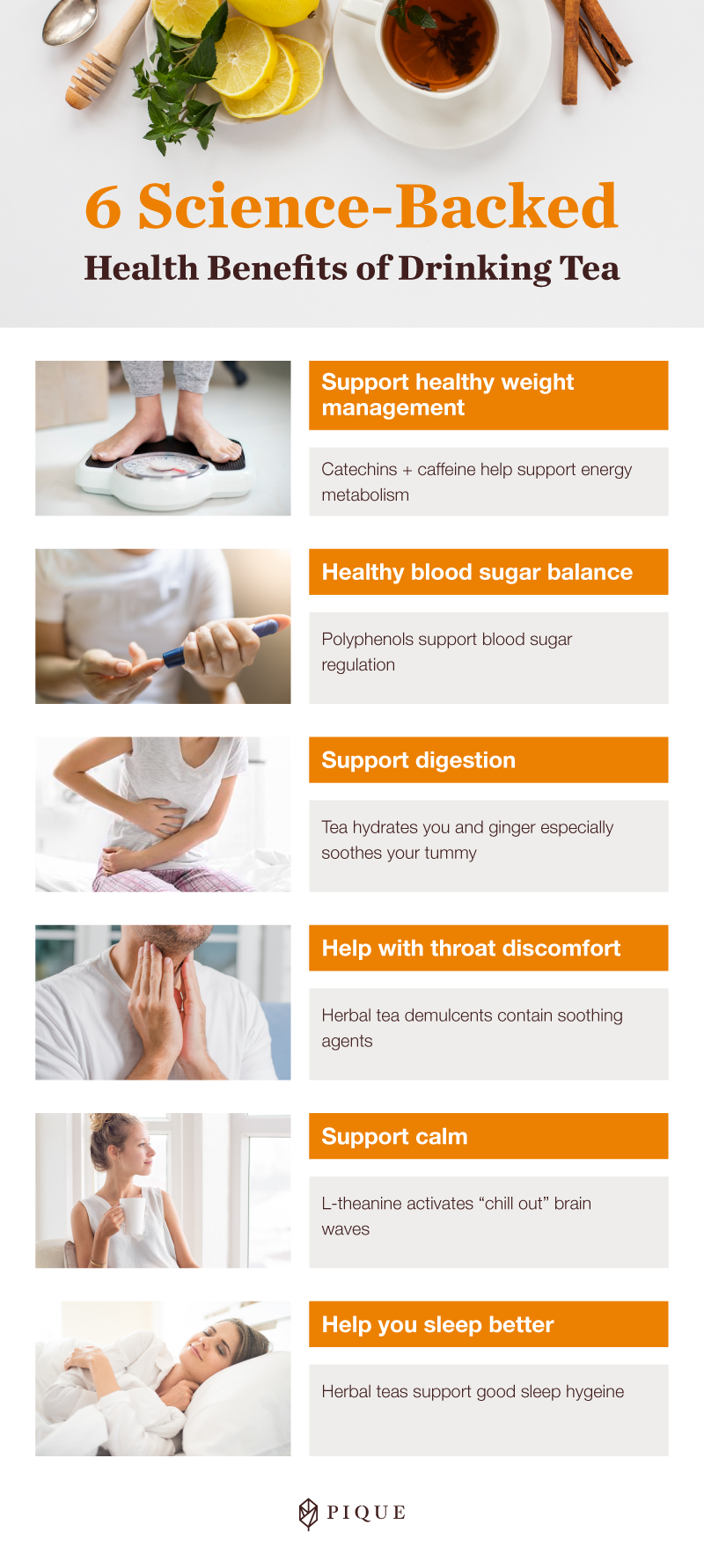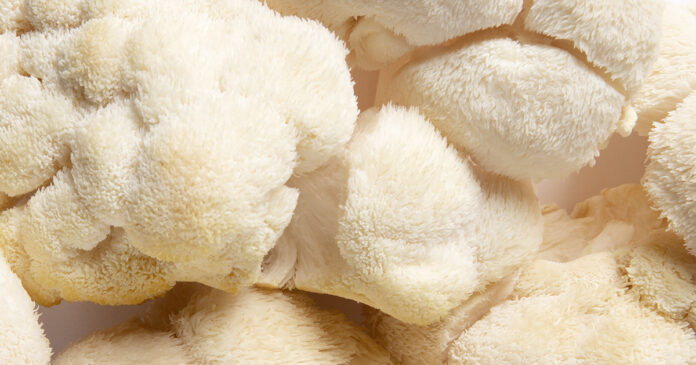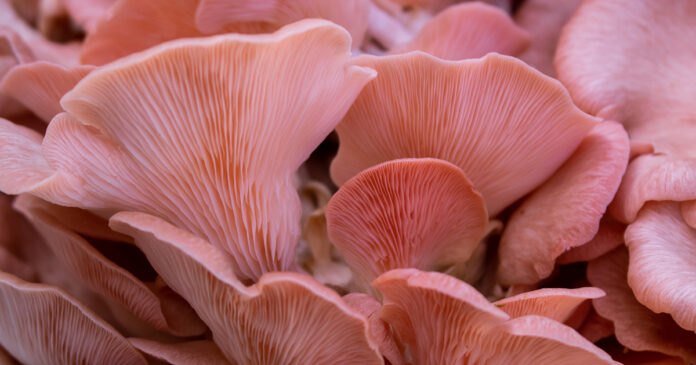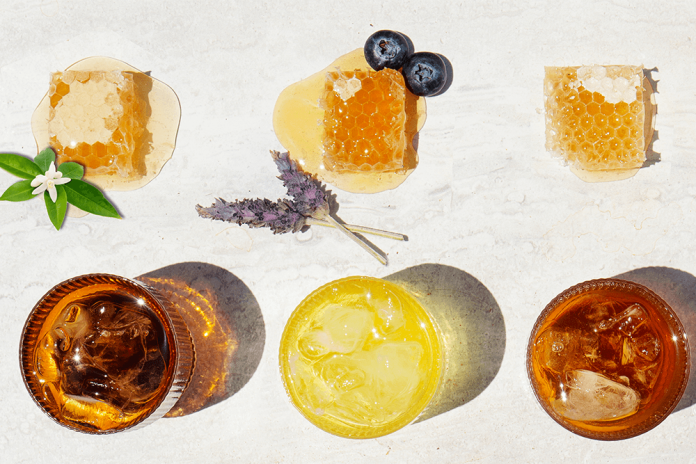We’ve all heard about the many health benefits of tea. Support for calmness, sleep, weight management, digestion—the list of tea health benefits could go on for days.
But is tea actually that healthy?
Rather, is it healthy enough to motivate us to exchange our beloved afternoon cappuccino for a black tea or matcha?
As it turns out, substantial research has been done on the health benefits of all different types of teas—black, green, oolong, rooibos, and herbal tea all included.
Read on to learn all the science-backed benefits of drinking one of the world’s favorite calorie-free beverages.
What is tea?
Before we dive into the potential health benefits of tea, let’s first cover a seemingly obvious, but actually very important, question: What is tea?
The first definition of tea, according to Merriam-Webster, is “a widely cultivated shrub (Camellia sinensis of the family Theaceae, the tea family) native to China, northern India, and southeastern Asia…” (1)
Many people don’t know this, but black tea, oolong, white and green teas are all made from the leaves of the same tea plant, Camellia sinensis bush.
That said, you can make tea out of just about anything—including berries, dried fruit, and the root, leaves, and flowers of any number of plants—so the alternate definition, “an aromatic beverage prepared from tea leaves by soaking them in boiling water,” is more inclusive of teas that don’t come from the C. sinensis bush and is probably more accurate in today’s world, where we’re making tea out of just about anything.
Is Tea Good For You?
The short answer to the question “Is tea good for you?” is “Yes.”
The long answer? There are so many different types of tea—which all seem to have their own individual health benefits—that it can be difficult to keep track of them all.
As a general rule, tea made from the Camellia sinensis is healthy because it’s chock full of antioxidants. As explained in the November 2013 Mayo Clinic Health Letter, “Tea leaves from C. sinensis are loaded with flavonoids and other polyphenols, which work as antioxidants.” (2)
What are antioxidants, you ask?
Essentially, they’re substances that work to support your body’s ability to deal with free radicals, which have been linked to many different health issues. (3)
There are high amounts of antioxidants in fruits and vegetables, especially the colorful ones, and according to the National Institutes of Health, “examples of antioxidants include vitamins C and E, selenium, and carotenoids, such as beta-carotene, lycopene, lutein, and zeaxanthin.” (4)
A large group of specific polyphenols, called catechins, are also credited for acting as antioxidants and providing many of the beneficial effects of tea. (5)
The Different Types Of Tea
As we learned earlier, there are a lot of different types of tea, many of which you’ve probably heard of before and some of which might be new.
Here are the main types of tea and what you should know about the benefits of each.
Green Tea Benefits
Green tea might be the most famous of all teas—and earns the spot for the most popular tea in Japan and China—so it makes sense it would come first on our list. (6)
There are many different types of green tea, including sencha, jasmine, bancha, and matcha. Matcha is a form of powdered green tea that’s been a centerpiece of Japanese culture for centuries and has just recently become popular in the Western world.
Whether you have it as loose leaf tea, in a tea bag, or as tea crystals, it’s high in antioxidants, especially one specific catechin called epigallocatechin gallate (EGCG). One study even showed that the EGCG levels in matcha are three times greater than regular green tea. (7)
Oolong Tea Benefits
Oolong is a traditional Chinese tea that’s made from the same plant as black and green tea but processed a little differently. It’s actually the perfect middle-ground between black and green teas, with slightly more oxidation than green and less than black.
Just like green tea or black tea, the taste of oolong tea can vary greatly but it’s typically an amber color. The Chinese have always believed that it’s beneficial for helping to manage a healthy body weight, and modern science seems to agree with them!
Studies have shown that oolong tea can help to support a healthy metabolic rate. (8)
Black Tea Benefits
Black tea is the most commonly consumed type of tea in the world, and it comes in many different popular breakfast varieties. For instance, it is the type of tea in English breakfast and earl grey blends.
Green tea might steal the spotlight, but black tea actually accounts for about 75% of the world’s tea consumption. (9)
Black tea has numerous health benefits, including supporting vitality and heart health. (10)
White Tea Benefits
White tea, like green, black, and oolong tea, is made from the Camellia sinensis plant. Yet white tea is the least processed of the tea varieties, and it’s picked early, just before its leaves and buds are fully open.
White tea has many of the same health benefits of green tea and black tea. However, because it is less processed, it tends to actually have higher quantities of catechins.
It also typically contains lower levels of caffeine than green or black tea.
Herbal Tea Benefits
Herbal tea (aka “tisanes”) is a very broad category of teas that includes any infusion of fruits, herbs, roots, or flowers that are not from the C. sinensis plant. In fact, some will argue that herbal teas aren’t true teas, but in our mind, their health benefits have at least earned them a seat at the table.
You’ve probably heard of peppermint, ginger, licorice, or the bright pink tea that’s made from hibiscus; these are all herbal teas and each one has its own set of health benefits depending on the ingredients it’s made with.
For example, many studies have shown that ginger can help support digestion and help you feel better if you have nausea. (11)
Rooibos Tea Benefits
Rooibos tea, also known as red tea or red bush tea, is made from a shrub called Aspalathus linearis, which is native to South Africa’s western coast. This nutty, amber-colored tea actually falls under the herbal tea category and is naturally caffeine-free.
Rooibos contains an array of antioxidants—including dihydrochalcones, flavonols, flavanones, flavones, and flavanols—which can benefit our health in various ways. (12) (13)
Chai Tea Benefits
Is there anything better than a chai latte on a blustery fall day? Maybe not.
The first thing to know about chai tea is that you actually shouldn’t call it that. That’s because “chai” actually means “tea,” so when you say chai tea it literally translates to “tea tea.” (14)
Instead, it’s probably more accurate to use “masala chai” to describe your favorite flavorful beverage made with black tea and spices like nutmeg, cinnamon, cardamom, ginger, saffron, fennel, peppercorn, clove, and star anise.
Masala chai is a beautiful mix of beneficial compounds and provides the health benefits of both black tea and the herbs mentioned above.
Just to give you a taste of what chai has to offer, nutmeg may support the body’s natural anti-inflammatory response. Additionally, fennel has long been used as an herbal galactagogue, which means it’s thought to help support breast milk production in breastfeeding women. (15, 16)
The Health Benefits Of Tea
Clearly, each type of tea has its own unique set of health benefits. But there’s substantial overlap as well!
If you’re wondering how, exactly, you might use tea to improve your health, look no further.
Here’s a list of some of the most common health woes and how tea might be able to help, according to science.
1. Tea to Support Healthy Weight Management
It’s often thought that tea can help support weight management. But is there any evidence?
It’s believed that the catechins and caffeine can work together to help support energy metabolism, which is a contributing factor to healthy weight management. (17)
A lot of research has been done on this topic, with some studies showing strong benefits and others less so. (18) (19)
The take-home? Green tea is probably a great addition to a healthy weight loss or maintenance plan—but it’s no magic bullet. It’s probable, also, that the downside of including green tea as part of a healthy diet and routine is low to non-existent.
2. Tea for Healthy Blood Sugar Balance
Tea does have some potential support for healthy blood sugar. It appears that the polyphenols in black, green, and oolong tea may help support healthy blood sugar regulation. (20) (21)
Research backs up this thinking, demonstrating black tea’s potential ability to support healthy glycemic management as well as green tea and oolong tea’s beneficial support of healthy blood sugar balance. (22, 23)
Certain herbal teas can also promote healthy blood sugar balance, especially those with cinnamon, which has known blood-sugar-supporting properties. (24)
The obvious choice to maximize blood sugar support would be masala chai—since it combines black tea and cinnamon—but there’s a catch 22: Most chai lattes are made with a sugar-filled powder or syrup, which is pretty counterproductive if you’re trying to balance blood sugar. Try making a homemade version instead!
3. Tea to Make Your Throat Feel Better
If pretty much everyone has had a pesky sore, scratchy throat and a hoarse voice at one point in time, no matter the cause. If this is you, you’re going to want to head straight to a group of herbs called demulcents, also known as “soothing agents.”
In a study published in the British Medical Journal, a blend of demulcents like licorice root, marshmallow root, and elm inner bark helped to soothe irritated throats. In other words, a hot herbal tea might be just what the doctor ordered. (25, 26)
Honey may also be of assistance here. (27)
4. Tea to Support Digestion
For those of us with a sensitive stomach, or who just ate a little too much at that family holiday party, tea can be a helpful remedy. This is especially true for ginger tea. Ginger has long been used to soothe digestive health woes and is currently being studied as a potential gastroprotective agent. (32)
If you have a sensitive stomach, you might want to proceed with some caution when it comes to green tea. When brewed strongly or consumed on an empty stomach, green tea can potentially cause stomach irritation. (33)
Excessive caffeine intake has also been linked to gastrointestinal disturbances, so that’s something to watch out for as well if you’re drinking a lot of black, green, or oolong tea. (34)
5. Tea to Help Support Better Sleep Hygiene
The good news for those who have trouble nodding off is that herbal teas, like those containing the herbs chamomile and valerian, have shown promise for supporting a healthier sleep schedule. (35)
And according to Brent Baur, director of the Mayo Clinic Center for Complementary and Integrative Medicine, “Results from multiple studies indicate that valerian—a tall, flowering grassland plant—may reduce the amount of time it takes to fall asleep and help you sleep better.” (36)
Both chamomile and valerian are good options to try if you’re having trouble with sleep, especially before turning to pharmaceutical drugs for sleep (which can be addictive) and over-the-counter sleep aids (which come with a surprisingly long list of side effects). (37, 38)
6. Tea’s Calming Benefits
Ask any room of people to answer the question “Are you stressed?” and you’ll almost positively receive a resounding “Yes.”
Stress is part of our lives; it’s by way of a little stress that we meet deadlines, ace a test, and generally succeed at tackling life’s many challenges.
That said, prolonged stress can damage our health in a variety of ways. It would behoove us to find a way to mitigate the effects of stress on our bodies and minds. (39)
So can tea help? Common tea ingredients, like lavender, have shown promise for supporting a calm demeanor.
Lavender has long been used as an all-natural relaxation aid and is thought to support the nervous system. Just make sure to take plenty of deep breaths through your nose while you drink, as lavender as been studied particularly in the context of aromatherapy. (40, 41)
Additionally, tea has a compound called l-theanine that may help support the regulation of neurotransmitter and brain activities. (42)
It’s found in particularly high amounts in green tea and has shown calming effects. (43)
Basically, it helps your brain chill out.
One study found that combining L-theanine and caffeine found in green tea can lead to a state of calm awareness and alertness without the jittery feeling sometimes associated with caffeine intake. (44)

The Best Tea For Energy: High-Caffeine Teas
Speaking of caffeine, it’s helpful to know exactly how much caffeine your tea contains—especially if you plan to drink it in the afternoon. (45)
- Black tea has the highest caffeine content, containing as much as 61 mg per serving (about 8 ounces).
- Green tea contains about 31 mg per serving
- The caffeine content of oolong tea can vary, but the average appears to be about 37 mg.
- To compare, a single shot of espresso typically contains around 64mg of caffeine. (46)
Ready for an expert hack? Companies making high-quality tea products will know the exact caffeine content of their tea and list it on the packaging. For example, Pique’s Sacred Lily Oolong tea contains 39 to 45 mg of caffeine per serving. Convenient, isn’t it?
What’s The Healthiest Kind Of Tea?
There are so many different types of tea and that means a lot of options to choose from. Green tea is often touted as the healthiest type of tea and it does, in fact, usually have higher levels of catechins than other types of tea. (47)
That said, all the teas mentioned above are healthy in their own way and it’s impossible to pick just one.
When you’re buying tea, it’s important to remember one thing: Not all teas are created equal. Quality can vary greatly depending on where the tea is grown and who’s manufacturing and selling it.
If you want to get the most out of your tea, do some research on the company and ask questions like: Is the tea grown organically? Is it sourced ethically? A good company will test its products for toxins and contaminants like heavy metals, pesticides, and microbes (Yes, these can all find their way into your tea!). (48)
How To Start Drinking Tea
Ready to join the legion of tea drinkers? Great! When it comes to when and how to drink tea, that’s really up to you!
Tea, whether black, white, green, oolong, or herbal, can be prepared and consumed with organic unsweetened nut milks (though try to avoid dairy), or they can be prepared without anything added.
Many people prepare black tea in particular with almond or coconut milk (and sometimes with lemon), and green tea and matcha tea lattes are very popular as well.
There are many options for preparation, really (and tons of recipes available to spark your creativity). If you want to get the full benefits of whatever tea you’re drinking, though, resist the urge to add sweeteners.
This is particularly true if you’re drinking tea for its blood-sugar-supporting properties or to support your weight management goals.
If you want to take your tea drinking to a whole new level, familiarize yourself with the temperature at which each type and blend of tea should be brewed. Similar to wine, there’s an amazing level of detail here—and different blends from different regions will have distinct flavors and health benefits.
You can even research the exact antioxidant content of your tea and how to prepare it to get the most bang for your buck.
A Final Word On the Health Benefits of Tea
So there you have it! You’re now an expert on all the science-backed health benefits of making tea part of your daily routine.
Tea is not only delicious, but it has quite a bit of research supporting a myriad of health benefits. Not only that, the downside of drinking tea is low to non-existent, making it a safe and awesome part of a healthy routine.






